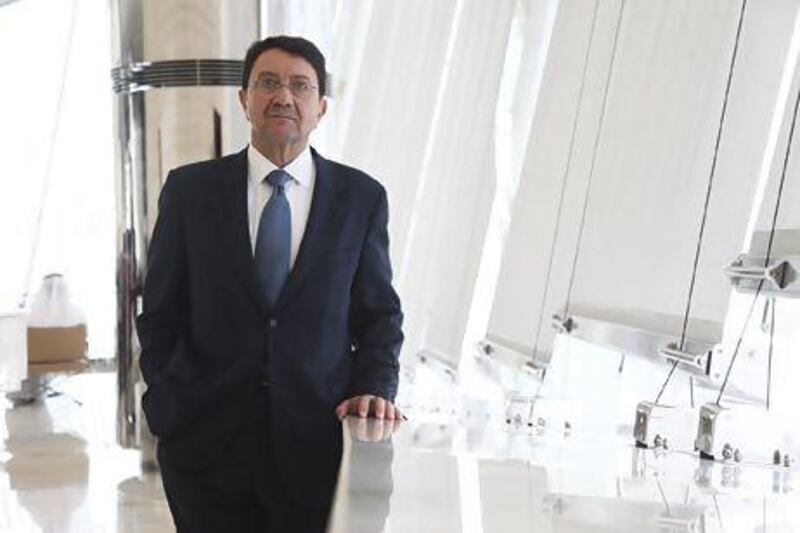The UAE should plough travel industry revenues into conservation projects, a top UN tourism chief said yesterday.
Tourism should contribute to sustainable development, said Taleb Rifai, the secretary general of the United Nations World Tourism Organization (UNTWO).
"I am not worried about the growth, but concerned about turning the growth in to something positive," he said on the sidelines of the 13th global summit of World Travel and Tourism Council in Abu Dhabi yesterday.
Last year, the number of international travellers passed 1 billion for the first time, reaching 1.035 billion. This year, the world tourism body expects numbers to grow by between 3 and 4 per cent, and on average at 3.8 per cent every year until 2020.
He urged countries such as the UAE to continue investing tourism profits in conservation and preservation.
"It's never about what you have, but about what you do," he said.
And the UAE is already doing that, he said, citing plans to plant more original species in the Abu Dhabi Mangroves, among other attractions.
In Dubai, the Ras Al Khor Wildlife Sanctuary covers an area of 620 hectares with saline flats, mudflats, mangroves, small lagoons and tiny islands lying between the Arabian Gulf and Al Awir Desert. With human intervention, more and more migratory birds are visiting the sanctuary.
But there is a "gap between best practices and where the industry stands today", said Jonathan Porritt, the founder and director of the UK-based non-profit Forum for the Future, during the conference. "We cannot do sustainability by add-on."
For sustainability to be the cornerstone of tourism, consumers' habits need to change.
"If 1 billion people refuse to change towels once a day in a hotel, buy local produce, and hire local guides, there will be a positive impact," Mr Rifai said.
The UNWTO comprises 162 member countries. The organisation initiates ideas, monitors projects and meets governments to help formulate national tourism strategies that promote sustainable tourism.
It also provides data collection and facilitates funding to countries through third parties such as the European Union, World Bank and regional development banks.
The organisation's Sustainable Tourism Eliminating Poverty programme, or ST-EP Foundation, runs 122 programmes across the world, ranging from US$500,000 (Dh1.8 million) to $1.5m.
Besides these, UNWTO has larger projects in the $20m and $25m range that are running in Central and South America such as Nicaragua and Salvador, and South East Asia as in Mekong Valley.
In Dashur, Egypt, the organisation is working with the local community to start small-scale enterprises in the tourism sector. The two-year-old training programme is set to end at the end of this month. Africa is the most promising tourism market, and this is where UNWTO is working with the local population to encourage sustainable tourism.
More than 52 million people travelled to Africa last year as tourism rebounded in North Africa, with the number of arrivals increasing by 9 per cent compared with a 9 per cent decline in 2011 and the continued growth in sub-Saharan destinations.
By 2030, the continent would receive 200 million travellers, the UNWTO expects.





